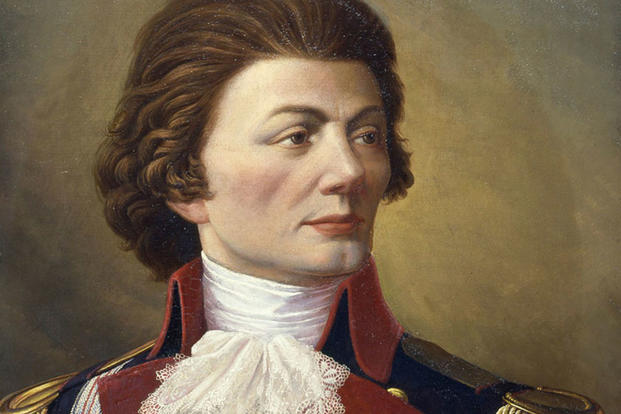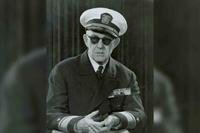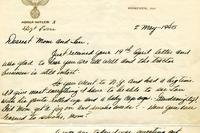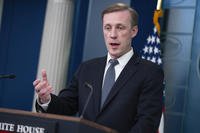During the Revolutionary War, military engineers were scarce, and the Continental Congress eagerly granted Tadeusz Kosciuszko the rank of colonel. The Polish nobleman was charged with defending the port of Philadelphia against British attack, which he did by fortifying the Delaware River at two crucial points, erecting Fort Mercer and placing palisades in the river to force the British ships into virtual canals so that they could be bombarded.
Tadeusz Andrzej Bonawentura Kosciuszko had entered military service as a time-honored tradition of escaping genteel poverty in his native country. He discovered a genius for strategy and love of liberty that guided him for the rest of his life. Like many educated Europeans, Kosciuszko was captivated by the American colonies' struggle for independence. Unlike many educated Westerners of his time, Kosciuszko believed independence was for all. He famously left a considerable sum of money to be used towards the education of former slaves in the colonies, and in 1794, he encouraged Jews in Krakow to rise up against Russian oppression.
Once Philadelphia had been saved, Kosciuszko was sent north to help with the defense of Fort Ticonderoga in New York. Although much of his advice was ignored, he taught retreating troops to fell trees and flood fields to slow their attackers' pursuit, providing enough time so that the rebels could prepare for the first major American victory of the war. At Saratoga, Kosciuszko fortified Bemis Heights over the Hudson, and this plan contributed to the surrender of 6,000 troops under Gen. John Burgoyne.
Kosciuszko's next challenge was to protect the Hudson River and its strategic garrison at West Point. His brilliant defenses like the redoubts at Fort Putnam provided a sweeping view of the river and allowed for a hail of artillery fire. However, his most memorable invention may be the 60-pound "Great Chain" of iron that could be submerged and then pulled taut to trap invading vessels. By war's end, he had been promoted to brigadier general and earned the respect of his American colleagues, including Thomas Jefferson, who called him "the purest son of liberty . . . that I have ever known, the kind of liberty which extends to all, not only to the rich."















